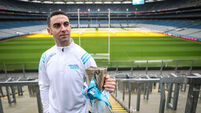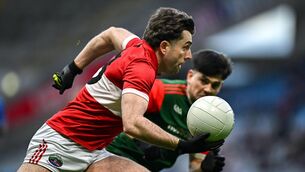Where loss is a genuine tragedy
WHAT happens when a man with eight All-Ireland medals finally hangs up his boots?Ger Power had enjoyed himself since his playing days ended. He was based in Tralee, where having the lowest golf handicap out of all the Kerry Golden Years players gave him a head start when the banter started at reunions.
For dressing-room banter he helped out training the Kerry hurlers, trading one-liners with youngsters who weren’t born when he won his first All-Ireland medal, or his last.














